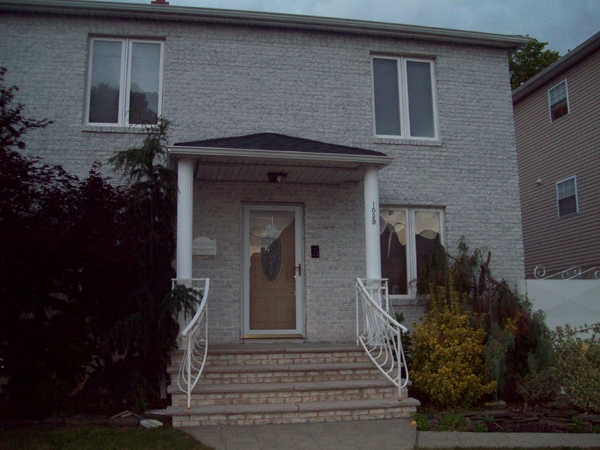
Reverse mortgage turns sour for heir
By Rick Daysog
rdaysog@sacbee.com
Published: Saturday, Aug. 6, 2011 - 12:00 am | Page 1A
Like thousands of local homeowners in their golden years, Rosemary Chandler took out a reverse mortgage in 2005 to help pay her expenses and remain in the Elk Grove home that's been in her family since the 1940s.
The decision worked out fine during her lifetime. But since her death in January 2010, it has created a legal mess for her son, who now faces foreclosure and eviction from the family home.
On Wednesday, Robert Chandler, 66, filed a class-action lawsuit against Wells Fargo Bank in U.S. District Court in San Francisco, alleging that the San Francisco banking giant routinely violated federal rules on reverse mortgages, forcing the homes of deceased borrowers to go into foreclosure instead of allowing family members to purchase them from the bank.
"Wells Fargo insists on evicting family members from homes that will go unsold or unoccupied," said Michael Ng, a San Francisco-based attorney who is working with AARP to represent Robert Chandler. "Wells Fargo's actions are not just wrong, they are economically irrational."
Wells Fargo said it followed federal guidelines in its handling of Chandler's loan.
"First, it's important to acknowledge that this is a case in which the reverse mortgage worked well for Ms. Chandler, who remained in the home through the end of her life," said Teri Schrettenbrunner, senior vice president for Wells Fargo Home Mortgage.
A popular source of financing for senior citizens, reverse mortgage loans allow homeowners over age 62 to tap into the equity built up in their homes. Usually, the loans are repaid when the borrower dies or sells the home.
Wells Fargo was the nation's No. 1 reverse mortgage lender before it pulled out of the market in June.
The legal dispute centers on a federal rule that gives spouses or heirs the right to purchase properties at 95 percent of appraised value upon the death of the borrower.
Robert Chandler's suit, which also names Fannie Mae, alleges that Wells Fargo didn't inform him of his right to purchase the homes at the appraised value, but instead told him he had to pay off the much larger balance of his mother's reverse mortgage loan.
At the time of her death, Rosemary Chandler had a loan balance of about $338,000. Chandler's lawsuit estimates the Elk Grove home is worth about $194,000.
Robert Chandler offered to pay the lesser amount, but the bank rejected the offer, and in January began foreclosure proceedings again him.
Chandler also sued Fannie Mae, the quasi-government mortgage insurer, because it actually holds his mother's loan. Fannie Mae declined comment Friday, citing the pending litigation.
For now, Chandler remains in the home.
Jean Constantine-Davis, an AARP attorney, said the difference between the loan balance and appraisal value isn't absorbed by the bank but should be covered by the federal government under a policy included as a standard part of reverse mortgage agreements.
To get that coverage, reverse mortgage borrowers pay a 2 percent upfront fee and monthly premiums that amount to about 0.5 percent of the annual loan balance, she said.
The Chandler case highlights the real estate downturn's impact on the reverse mortgage lending business.
The once popular form of financing allowed thousands of senior citizens to realize the long-term appreciation of the value of their homes, providing much needed financing for land-rich, cash poor homeowners.
But the collapse of the local real estate market has created turmoil for that lending sector. With home values so low, lenders face the prospect of massive losses if they have to sell properties at current market prices.
During the past year, Wells Fargo, Bank of America and Financial Freedom, which combined for more than 35 percent of the market, stopped issuing new reverse mortgages, according to Reuters.
Loan volume, meanwhile, is down about 37 percent from its 2008 peak, Reuters said.
Citing figures from trade publication Reverse Mortgage Daily, Chandler's lawsuit noted that as many as 93,000 federally insured reverse mortgage loans, or roughly 17.2 percent of outstanding loans, are secured by homes worth less than the loan balance.
"The economic collapse has made it so much less attractive for the lenders," said Norma Garcia, senior attorney for the Consumers Union and co-author of a December 2010 report titled "Examining Faulty Foundations in Today's Reverse Mortgages."
Read more:
http://www.sacbee.com/2011/08/06/3820539/r... Currently I am in the process of negotiating one..if you have any questions don't hesitate to email me. Thanks!
 Posted By: Marta Fernandez
Posted By: Marta Fernandez
Sunday, August 7th 2011 at 1:00AM
You can also
click
here to view all posts by this author...